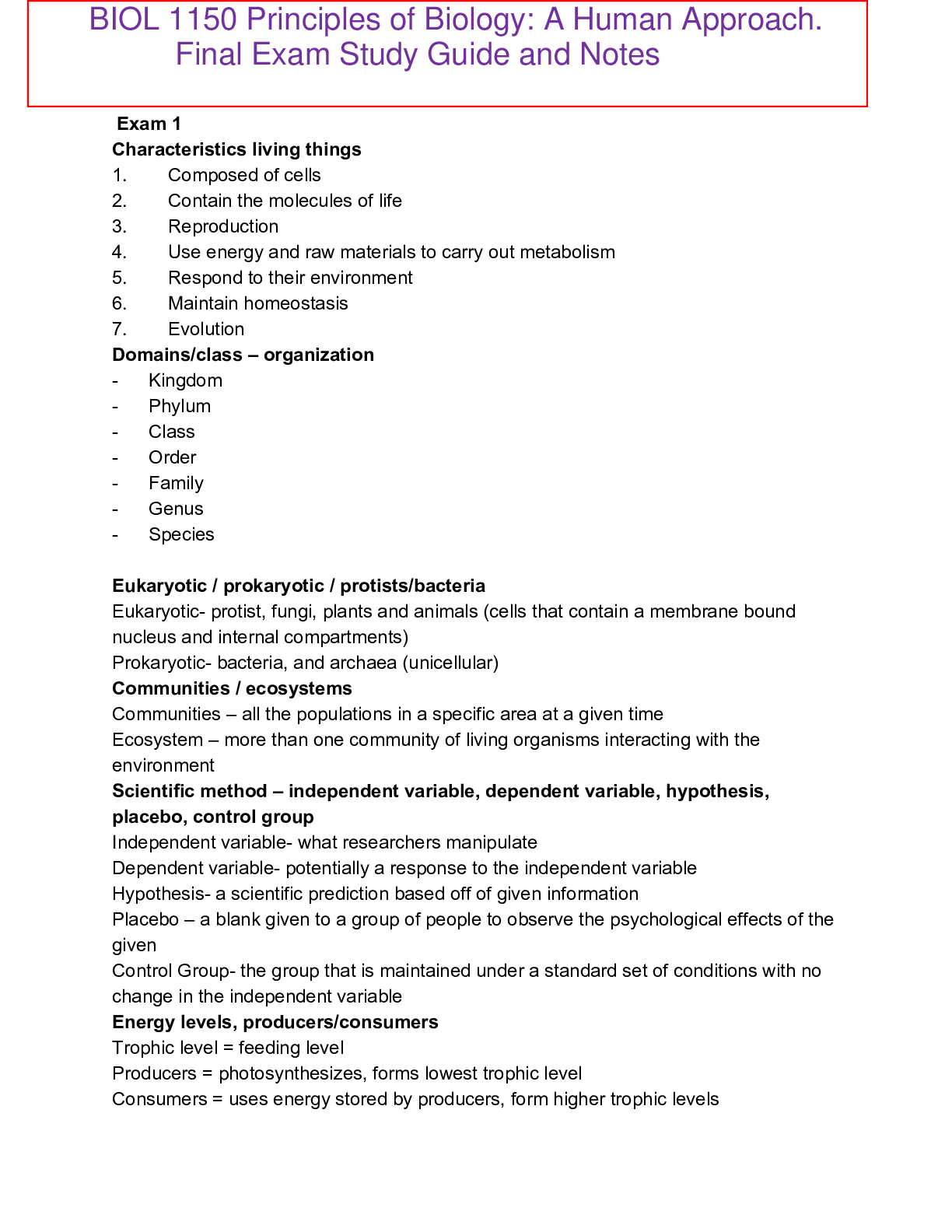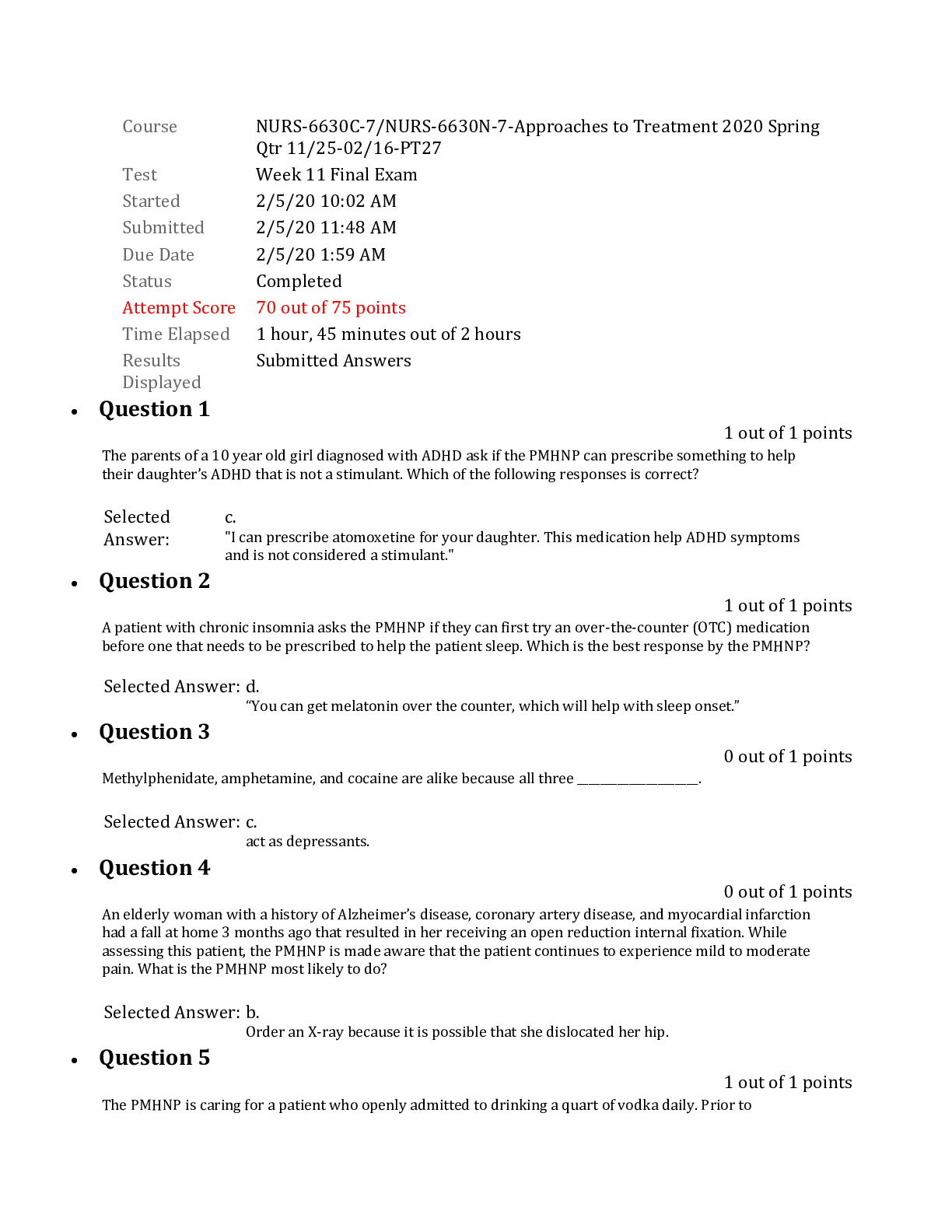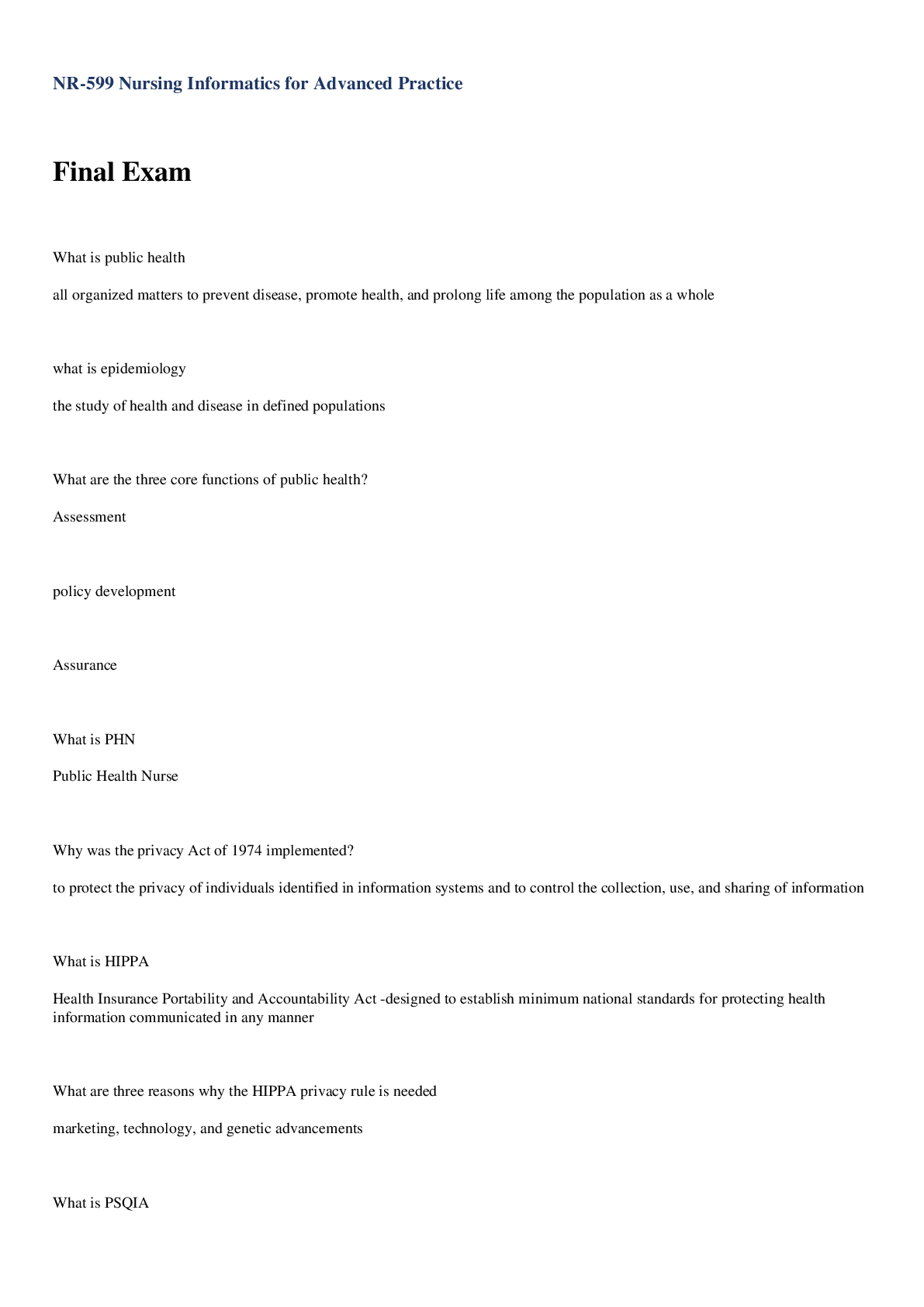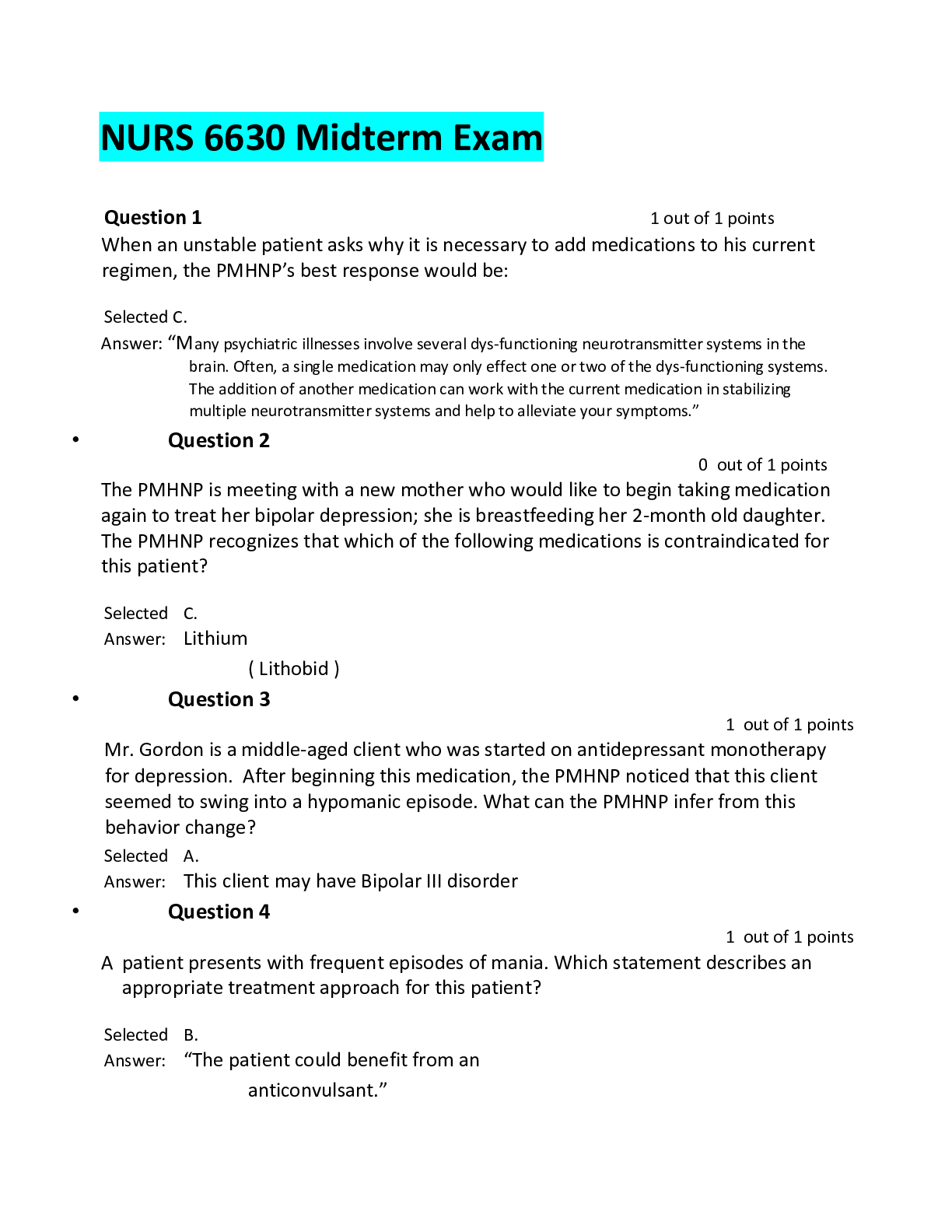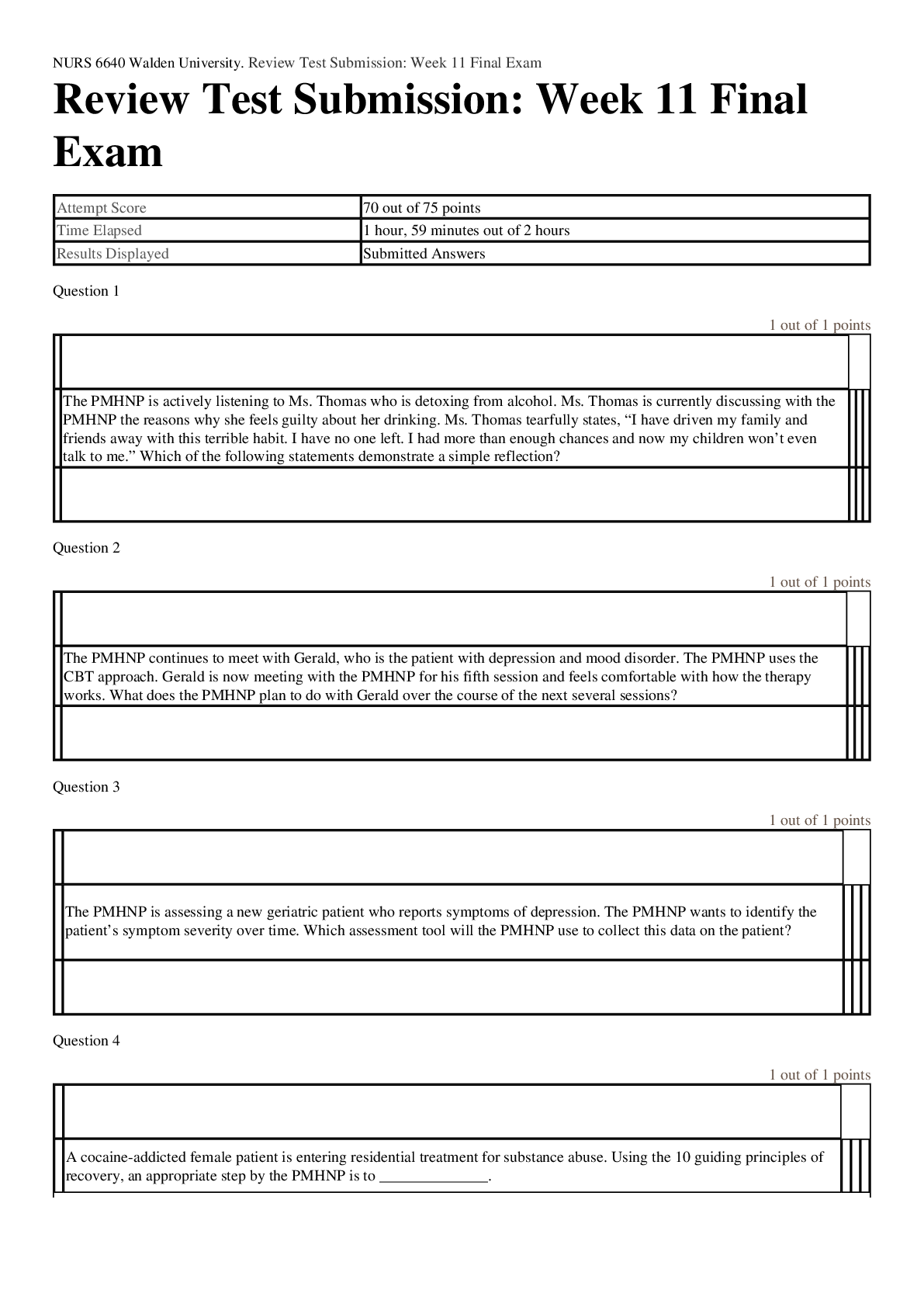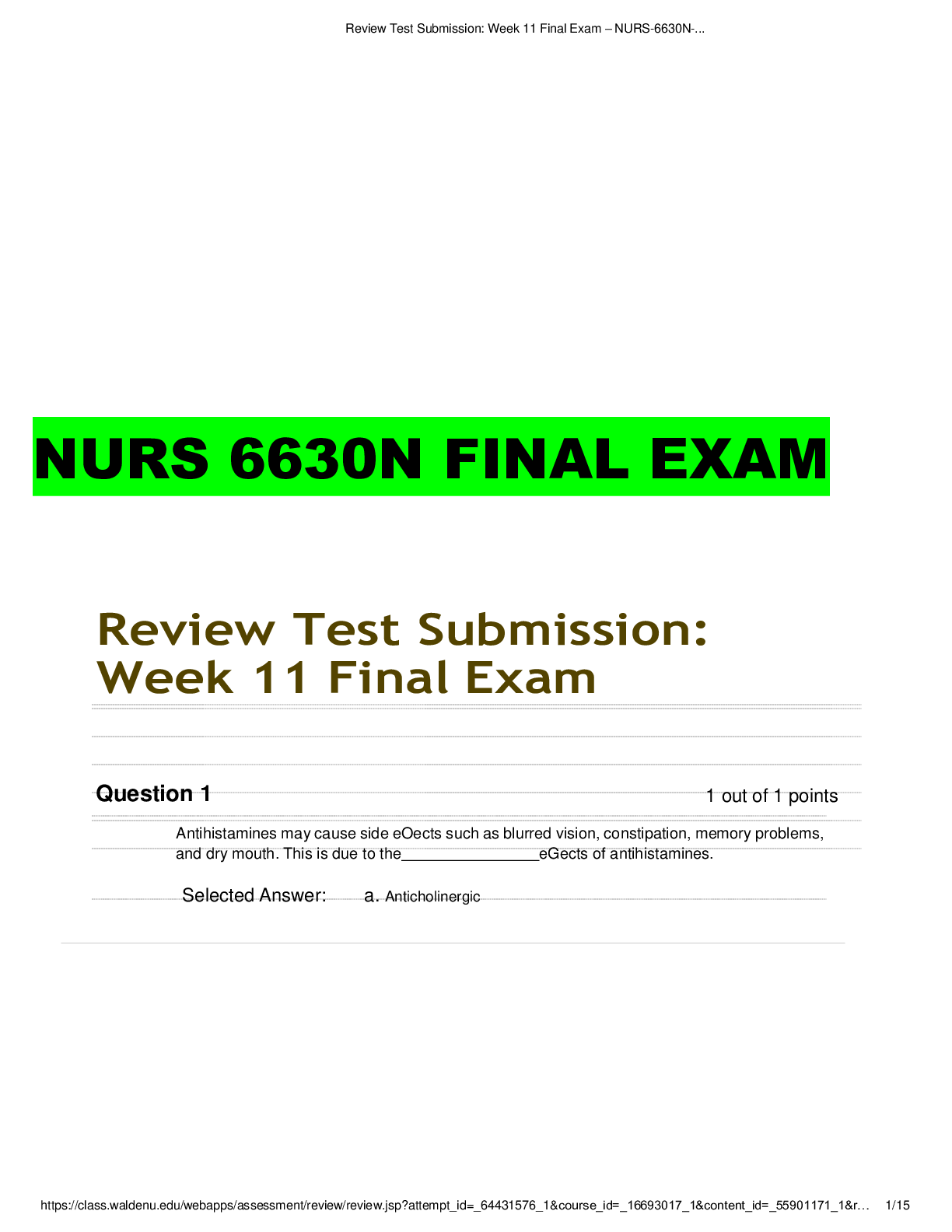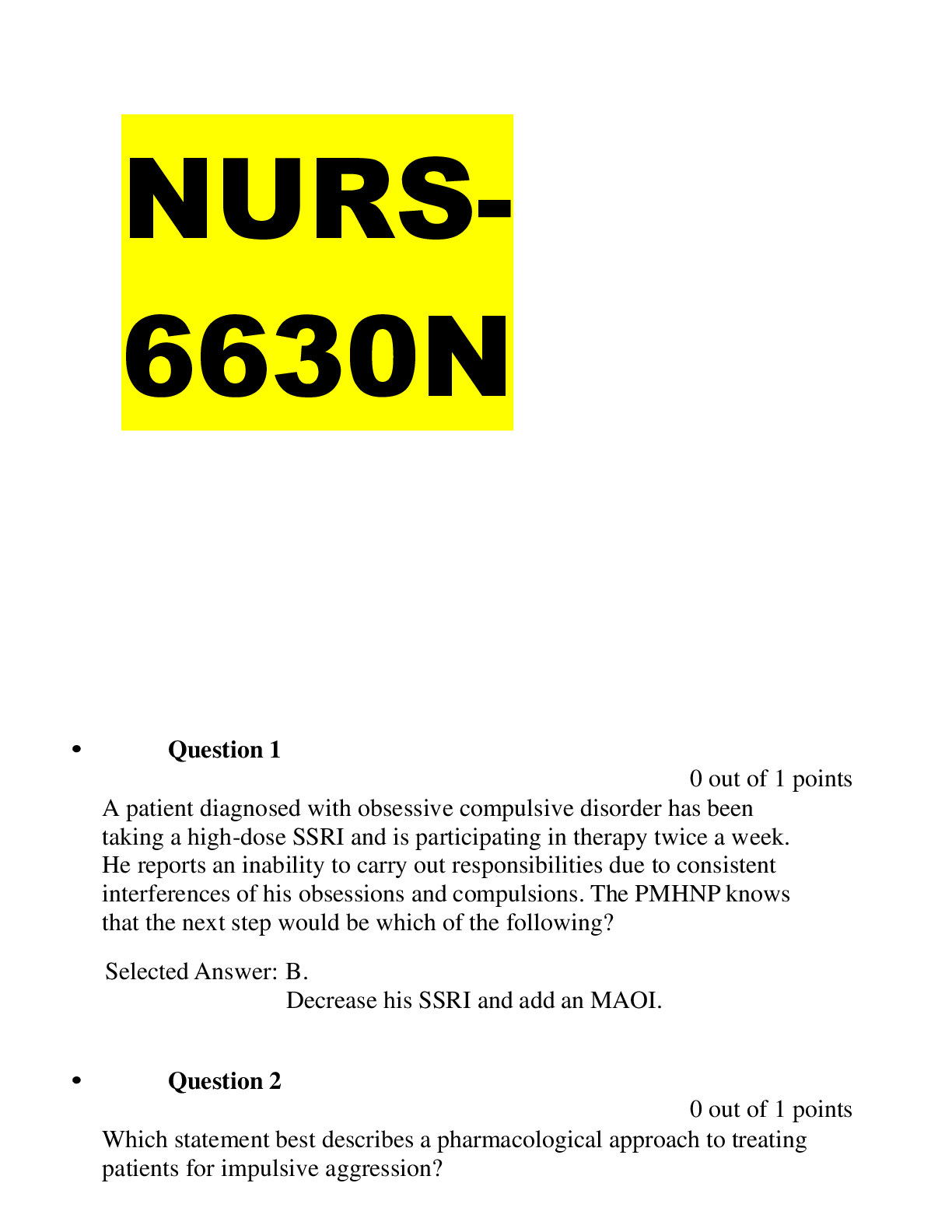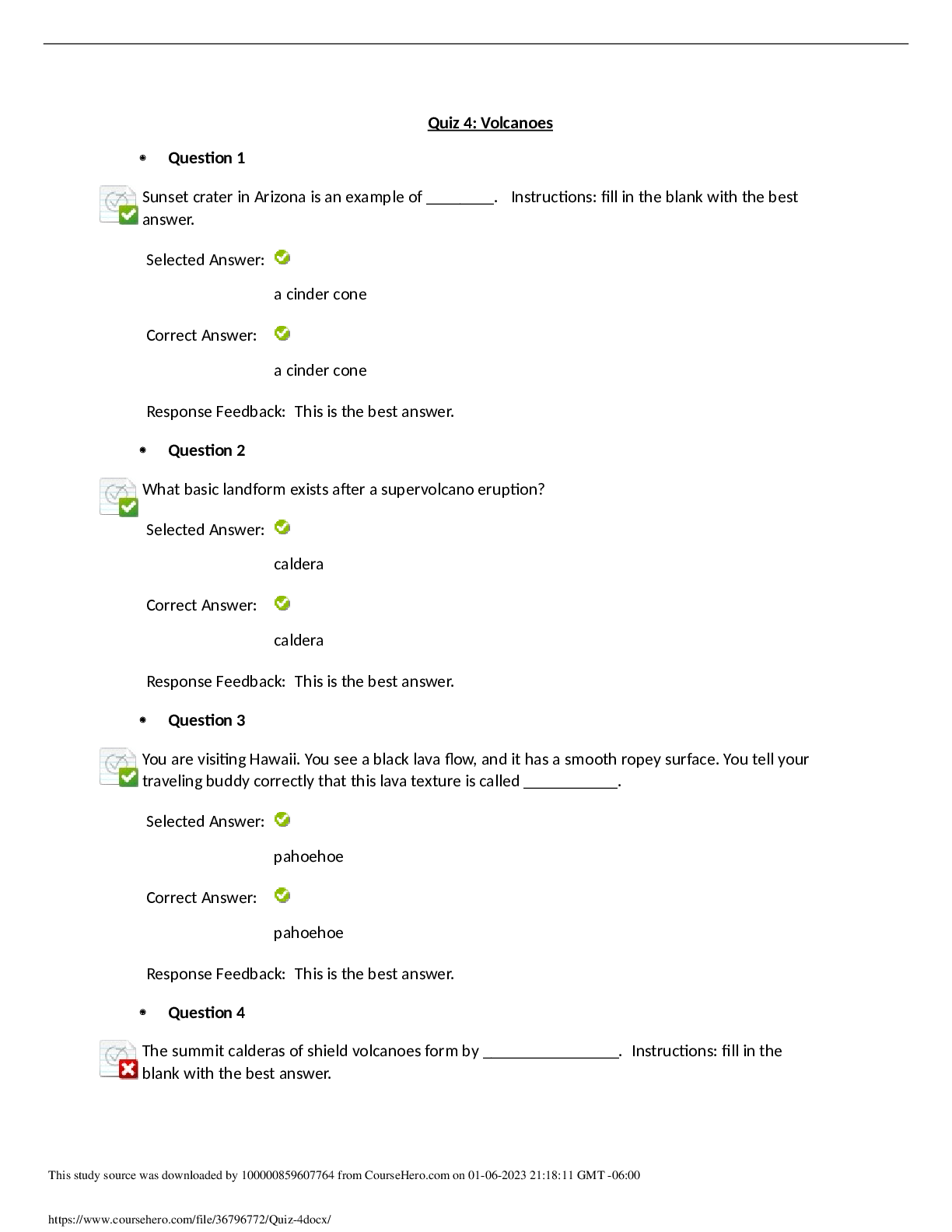*NURSING > EXAM > NURS 6630 / NURS6630: Psychopharmacologic Approaches to Treatment of Psychopathology Final Exam (Lat (All)
NURS 6630 / NURS6630: Psychopharmacologic Approaches to Treatment of Psychopathology Final Exam (Latest 2020 / 2021) Walden University
Document Content and Description Below
NURS 6630 / NURS6630: Psychopharmacologic Approaches to Treatment of Psychopathology Final Exam (Latest 2020 / 2021) Walden University 1. 32-year-old Sally comes into treatment for health anxiety/hy... pochondriasis. She has not improved following a lengthy course of client-centered, supportive therapy where she and her therapist discussed her irrational fears of illness. What maintaining factors or safety behaviors might you assess for to understand her lack of progress? - Avoiding anyone who is sick/going places where people are sick - Escaping situations when someone is coughing/displaying sick behaviors - Hypervigilance/seeking reassurance from others 2. According to Lang's bio-informational theory, what is the mechanism of change in behavioral interventions? Briefly explain. - Emotional Processing To overcome a pathological fear, the emotion network must be activated and - disconfirming information must be presented in a way that allows the individual to create new response and meaning elements for the stimulus elements in the situation. - Cognitive change happens in addition to extinction of conditioned responses during exposure-based treatment for pathological fears, and cognitive and conditioning processes are related. 3. According to Young (conclusion), what are key differences between Schema Therapy and traditional short-term cognitive therapy. (six) - there is less guided discovery and more confrontation - there is much greater use of the therapeutic relationship as a vehicle of change - there is much more resistance to change; therefore, therapy is lengthier - the level of affect is much higher during schema-focused sessions - the therapist is much more concerned with identifying and overcoming cognitive, affective, and behavioral avoidance - schema-focused therapy devotes considerably more time to the childhood origins of schemas and to experiential techniques surrounding these early issues 4. Both a cognitive therapist and a behavior therapist might have an OCD patient refrain from washing his hands while handling "contaminated" items. How do these therapists conceptualize the rationale for and the effect of this intervention differently? - Cognitive: Cognitive therapists want him to handle "contaminated" items so he can disconfirm his anxious beliefs. - Behavior: Behavioral therapists want him to handle "contaminated" items so he can learn coping skills as well as extinct his fear and habituate his anxiety response 5. Briefly define/explain therapist non-adherence and patient-non-adherence. - Nonadherence is the failure to carry out a behavior that has been agreed to or is expected. - For a therapist this might include not monitoring the progress of therapy, failing to obtain the patient's informed consent to the treatment plan, and not reviewing the patient's homework assignments - For a patient this might include not doing therapy homework, not attending regular sessions, not proposing agenda items for therapy session, and not using therapy time productively 6. Briefly describe DBT "irreverent communication strategies" - Used to push a client "off balance", to get the client's attention, present an alternative viewpoint, or shift the client's affective response when the client is immovable, or when the therapist and client are "stuck". 7. Briefly describe one (1) strategy or technique you might use to help orient a patient to his/her values. - Values Card Sort to help clients to identify what principles are most important to them. - Have them sort values into three piles: 'Very Important to Me', 'Important to Me', and 'Not Important to Me'. - After completing have them pick out their 10 ten principles of each. - Ask the client to elaborate on top choices. 8. Briefly describe Relational Frame Theory (using the spit/saliva metaphor or the GLORG metaphor) - RFT seeks to explain how language develops and can dominate over experience. If a child is taught that the letters G L O R G relate to an image of a Glorg as well as that the letters G L O R G relate to the sound "Glorg", other relationships will be derived (made without direct experience). The child will learn to relate the image to the letters and the sound, and the sound to the letters without being explicitly taught. Because of this derived relational responding, language tends to be bidirectionally related to experience, which is unique to humans For example, if a child and a parrot are exposed to an actual Glorg which makes a scary noise, the child may also react in fear to the word "Glorg", where the parrot won't. Humans can become afraid in the presence of words even when they have not predicted something bad for example, if the scary stimulus of "Glorg" is then paired with "Snartle", the child may become afraid of the sound Snartle, and eventually the word Snartle and the image of a Snartle despite it never predicting anything bad. [Show More]
Last updated: 1 year ago
Preview 1 out of 11 pages
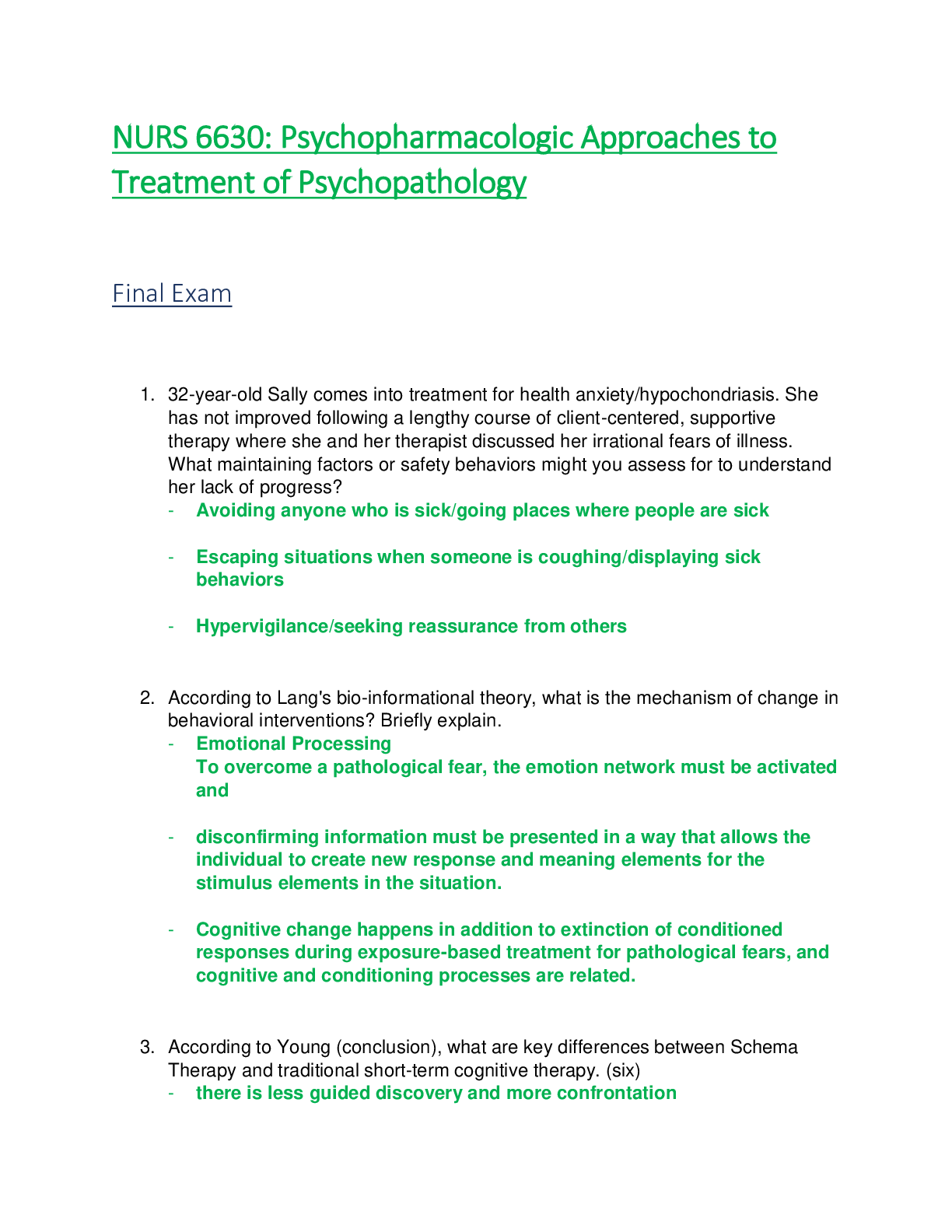
Reviews( 0 )
Document information
Connected school, study & course
About the document
Uploaded On
May 12, 2022
Number of pages
11
Written in
Additional information
This document has been written for:
Uploaded
May 12, 2022
Downloads
0
Views
17

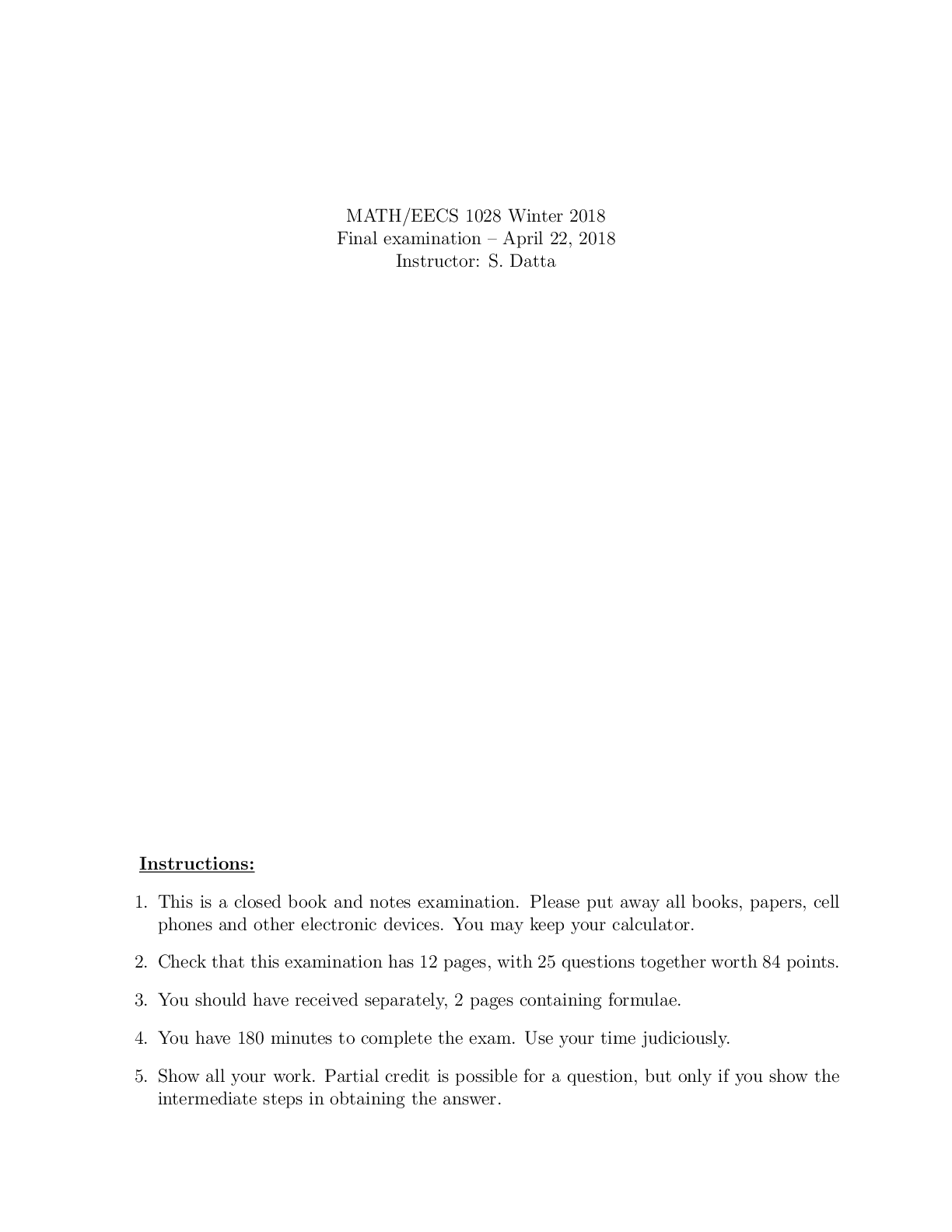
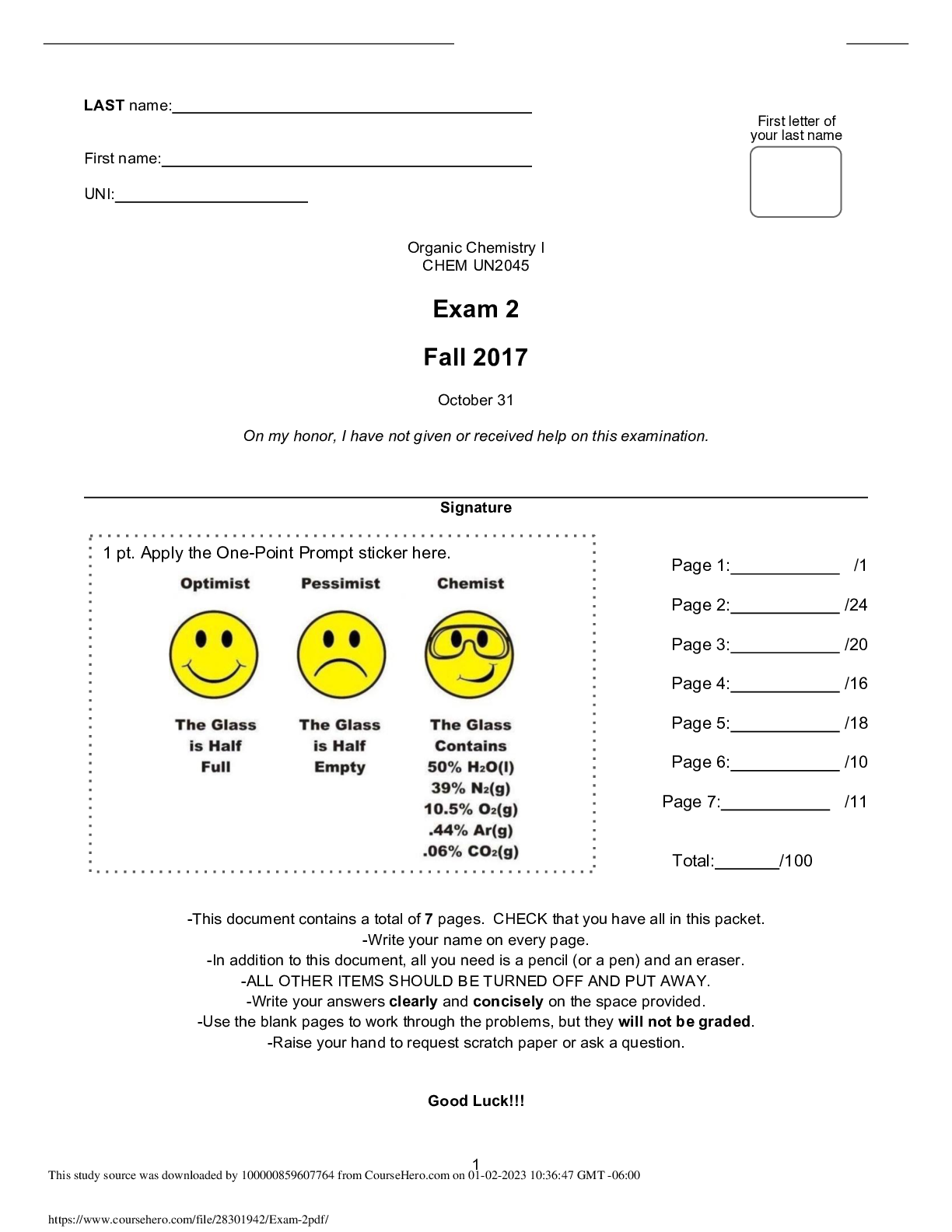
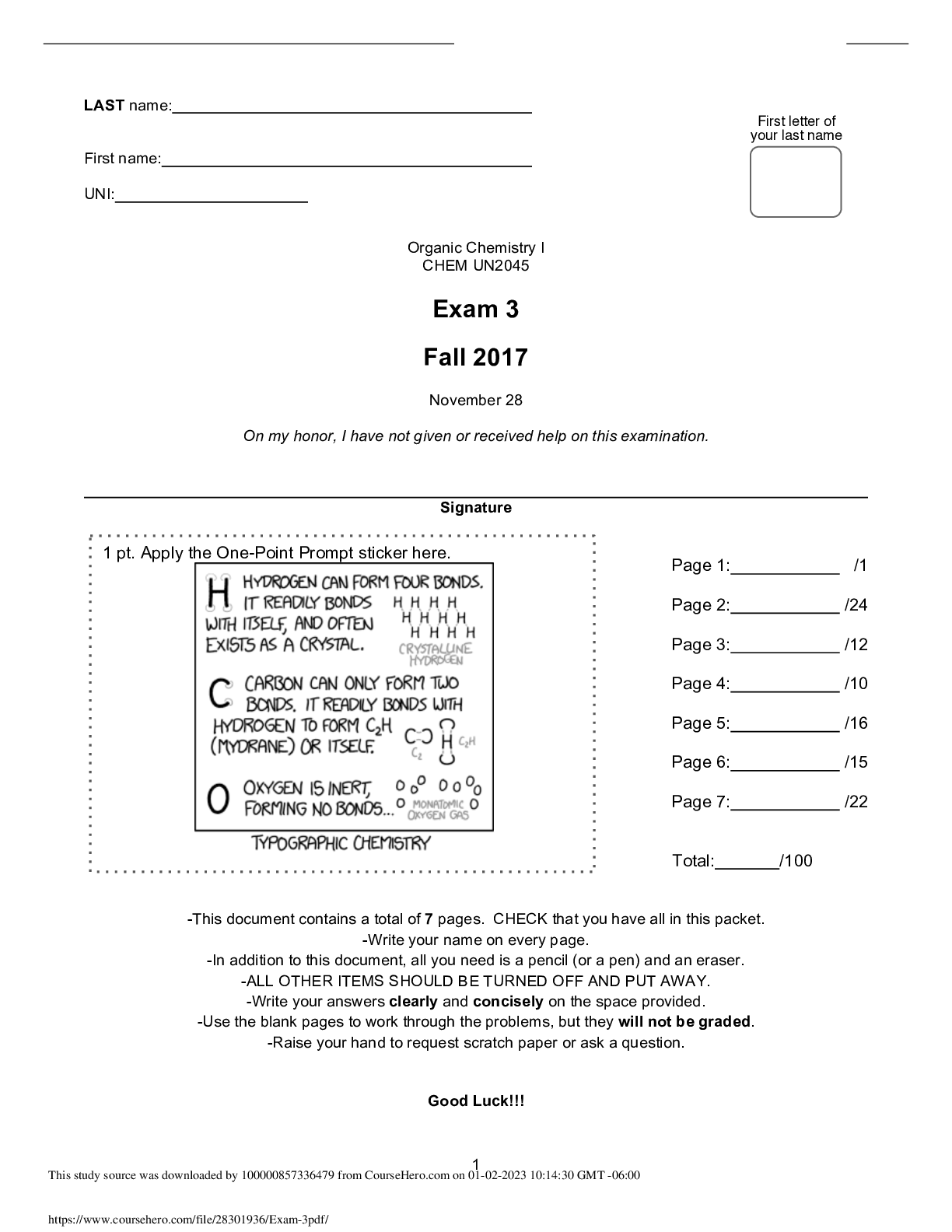
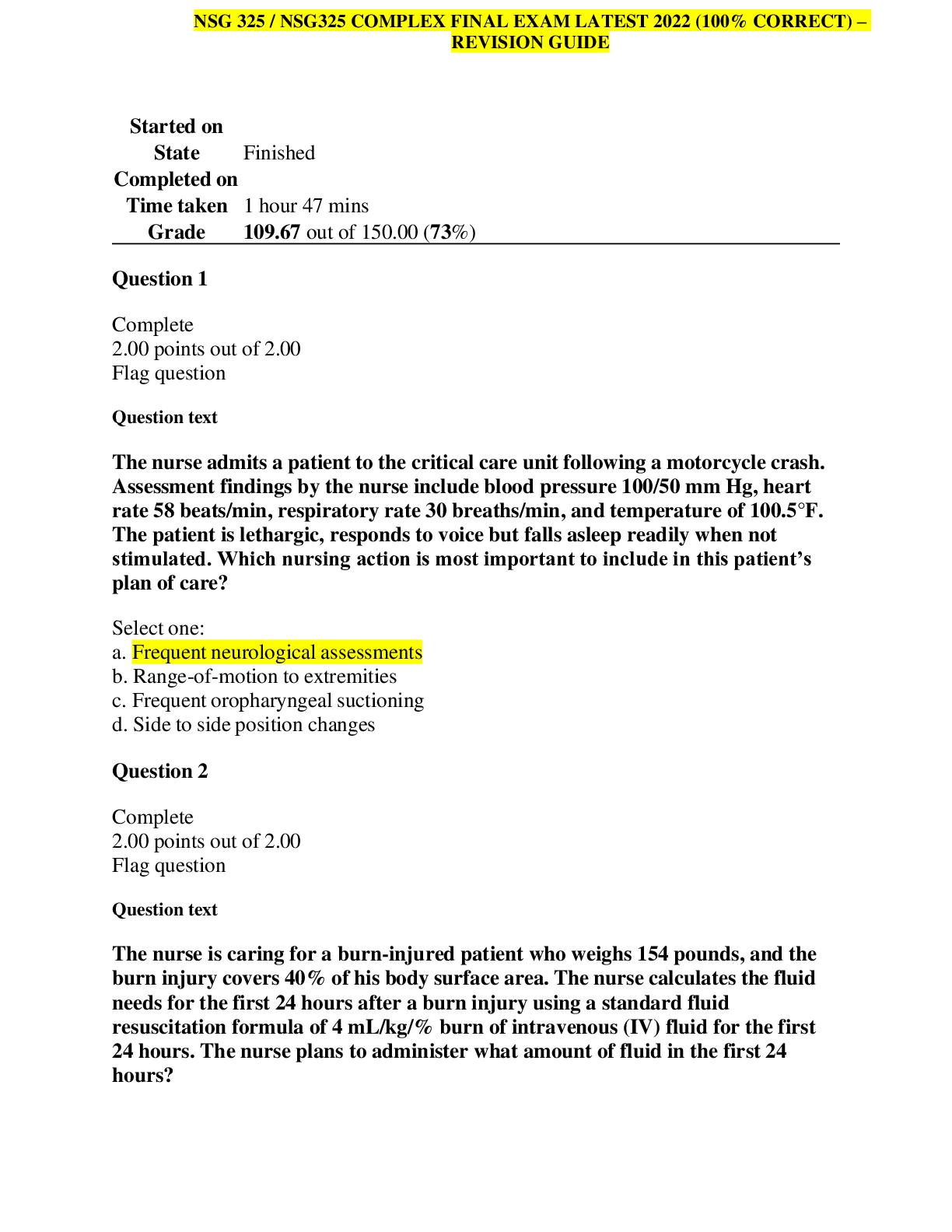
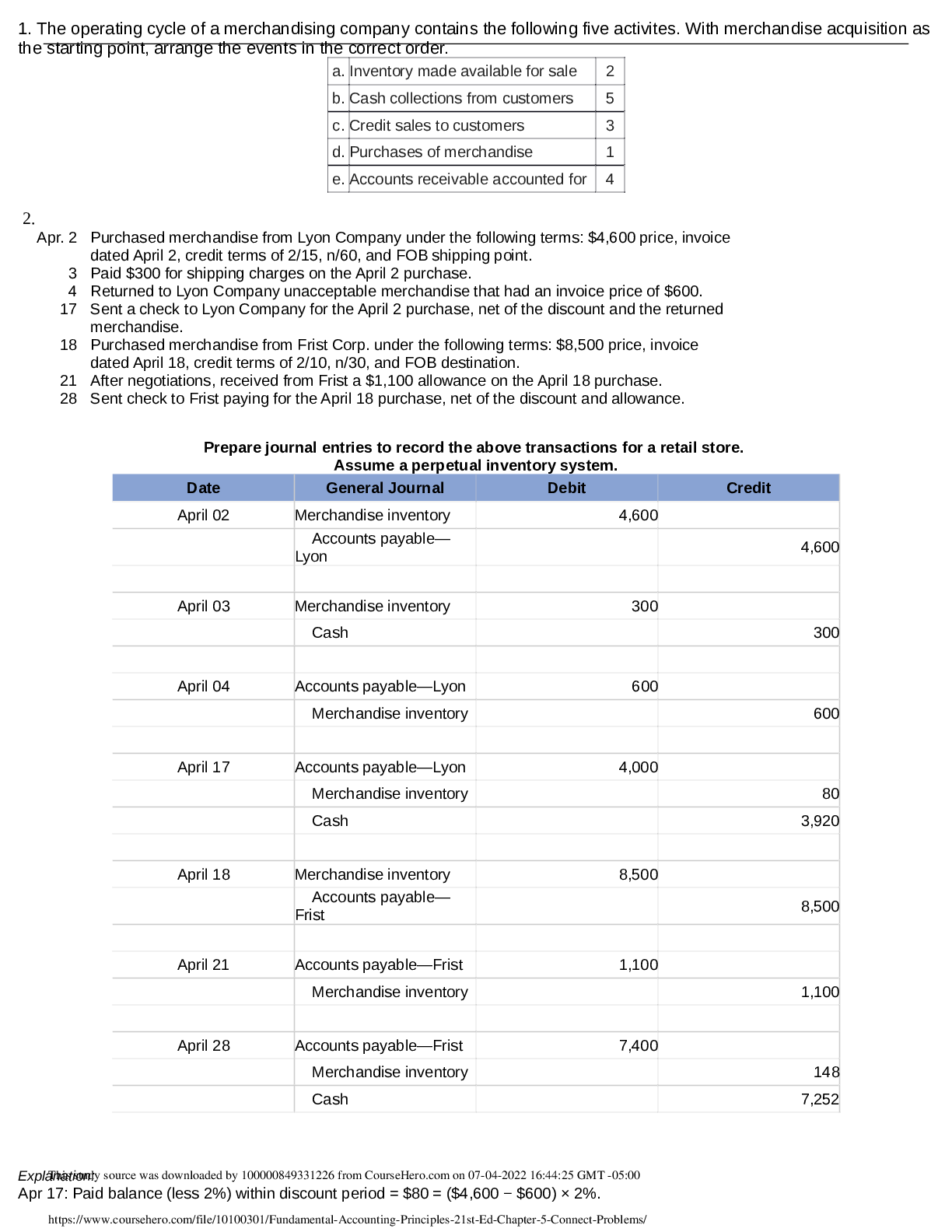
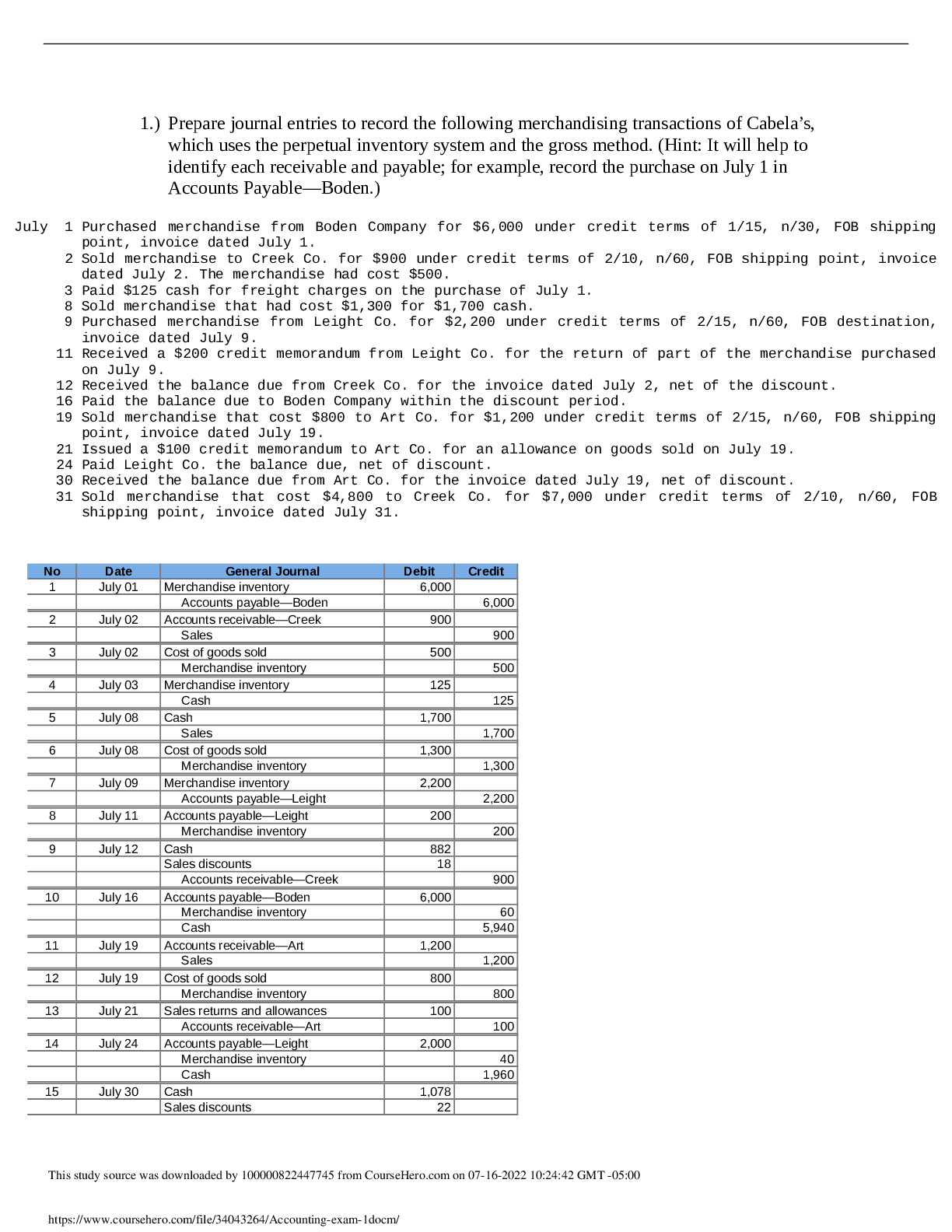
.png)
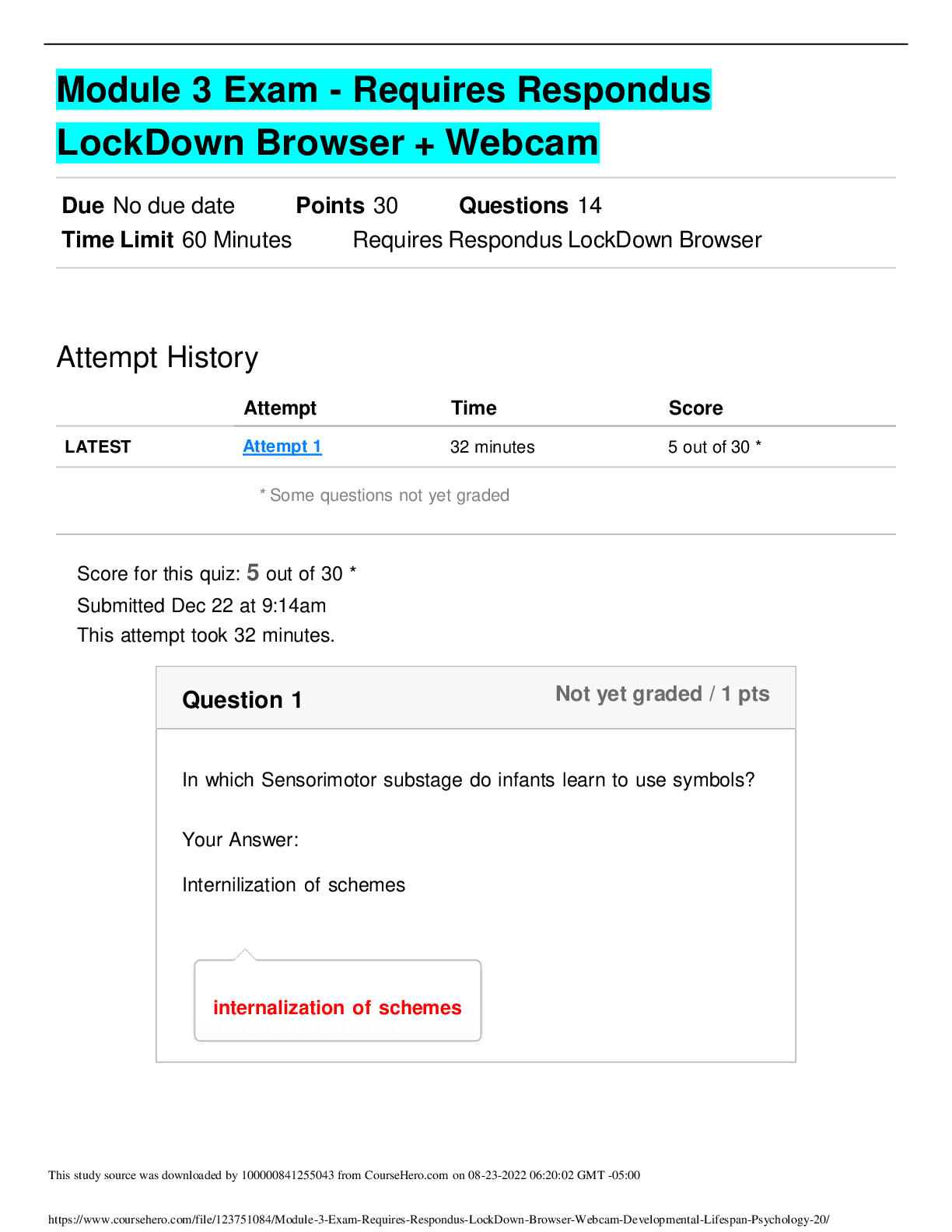


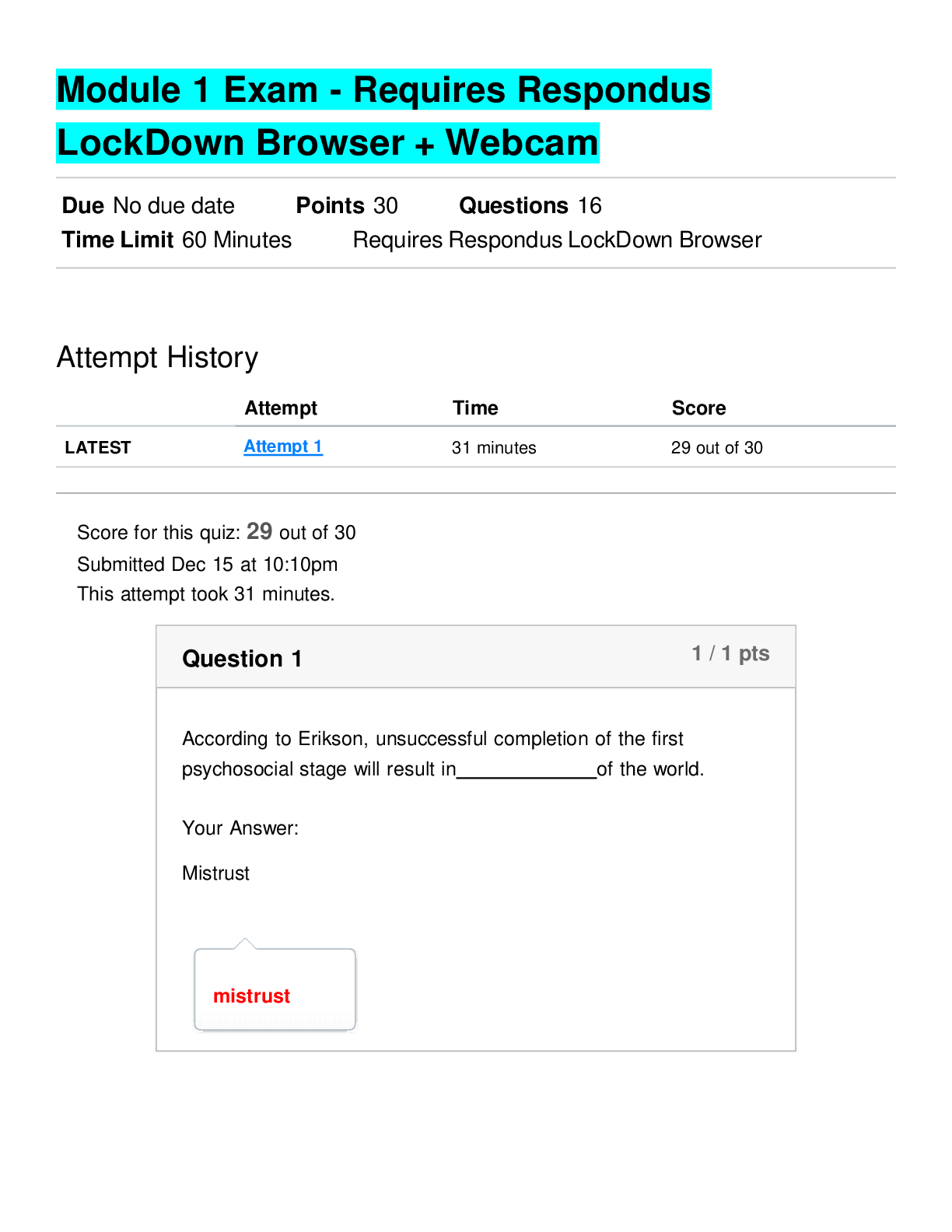
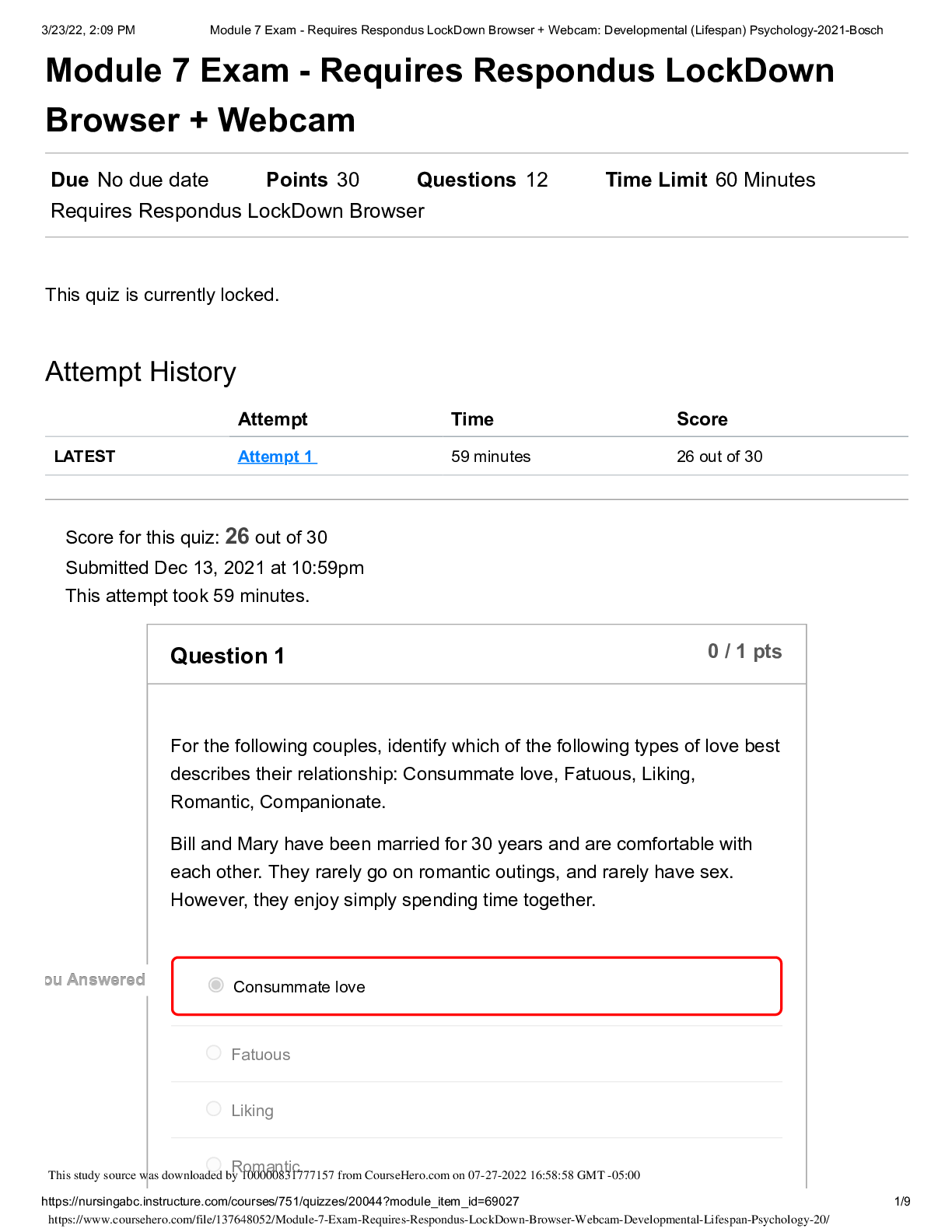
.png)
